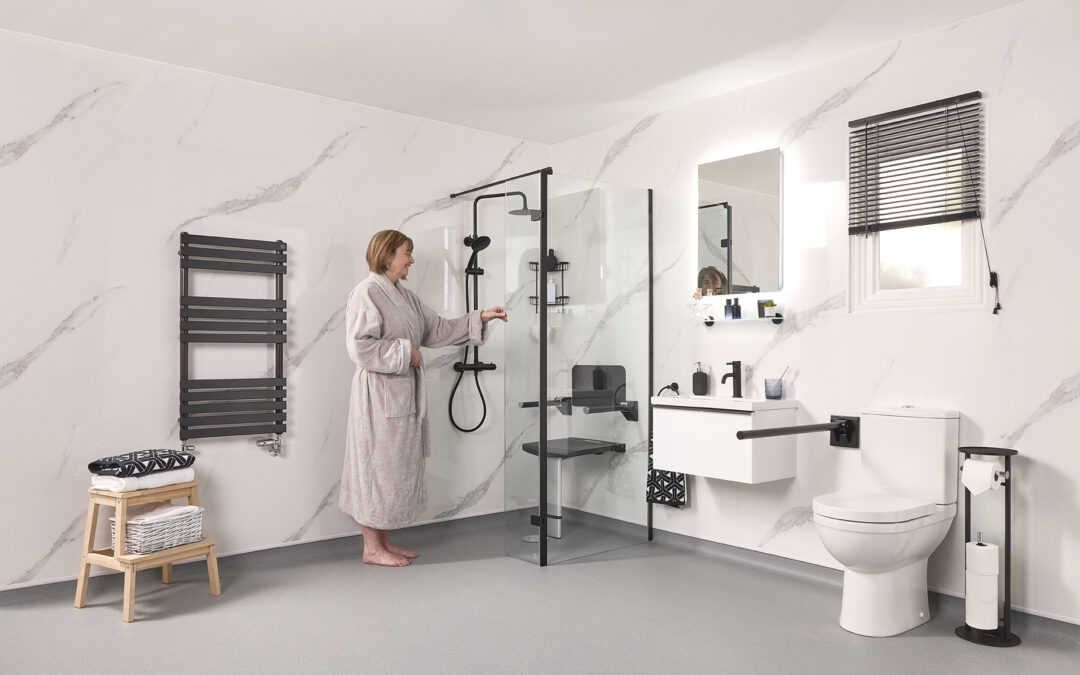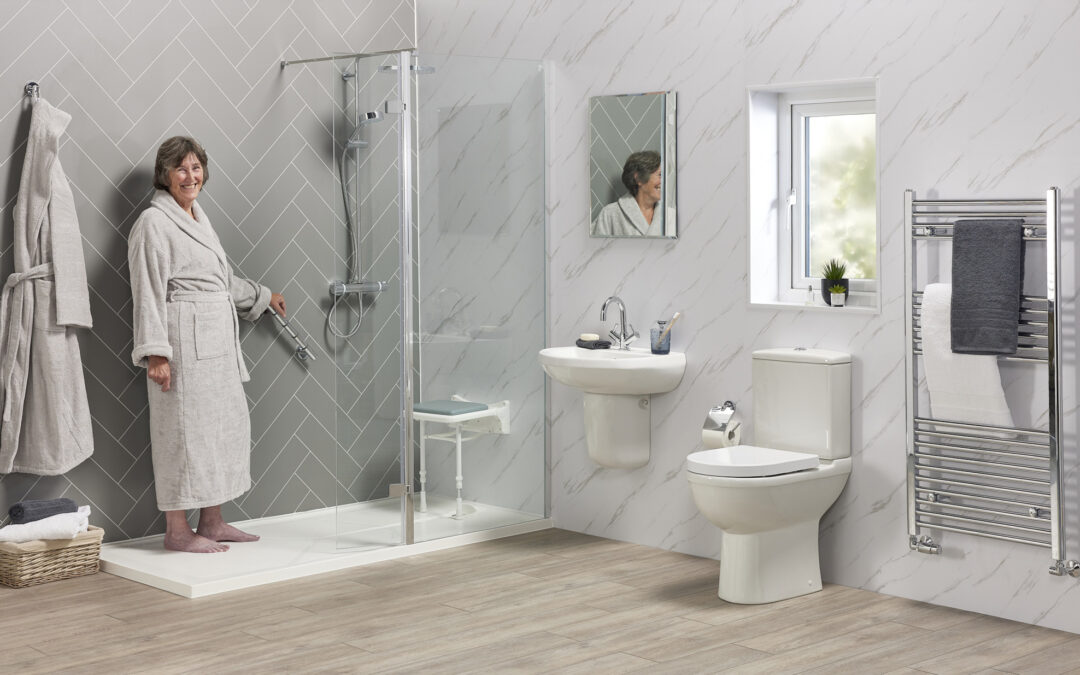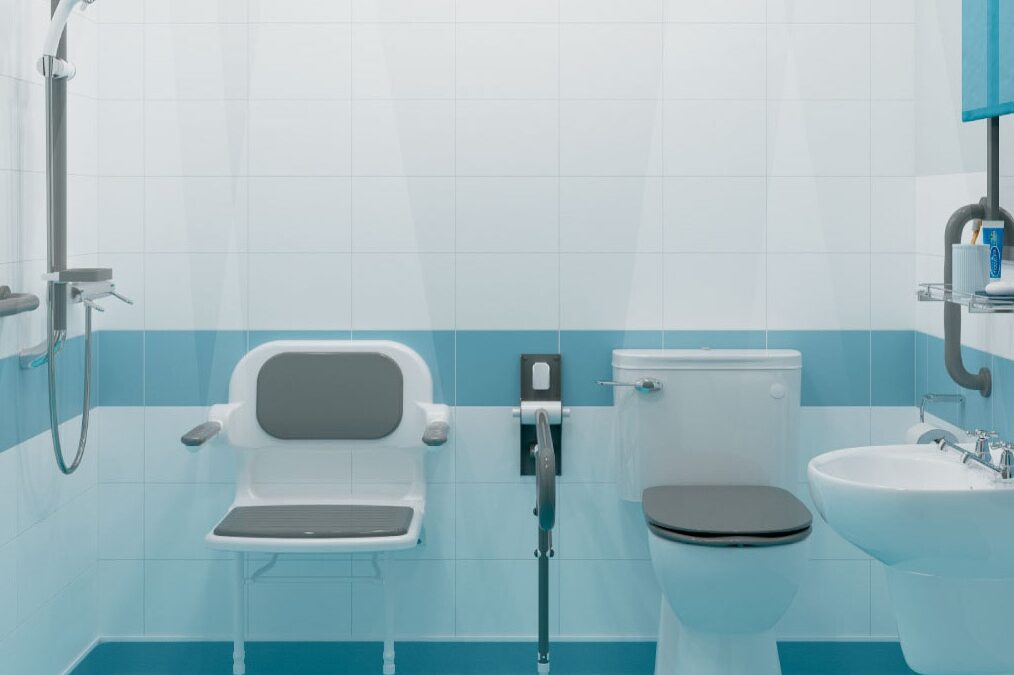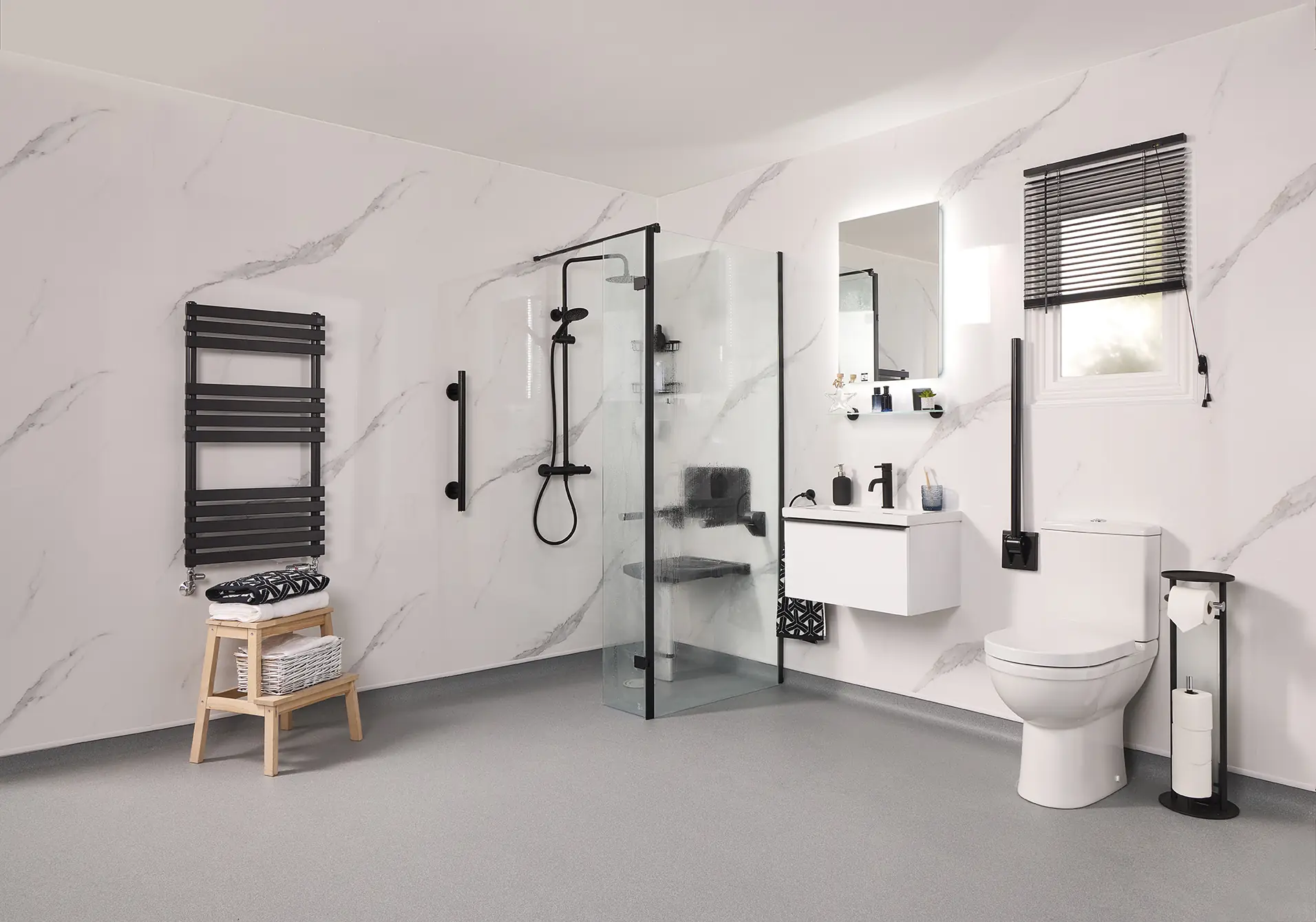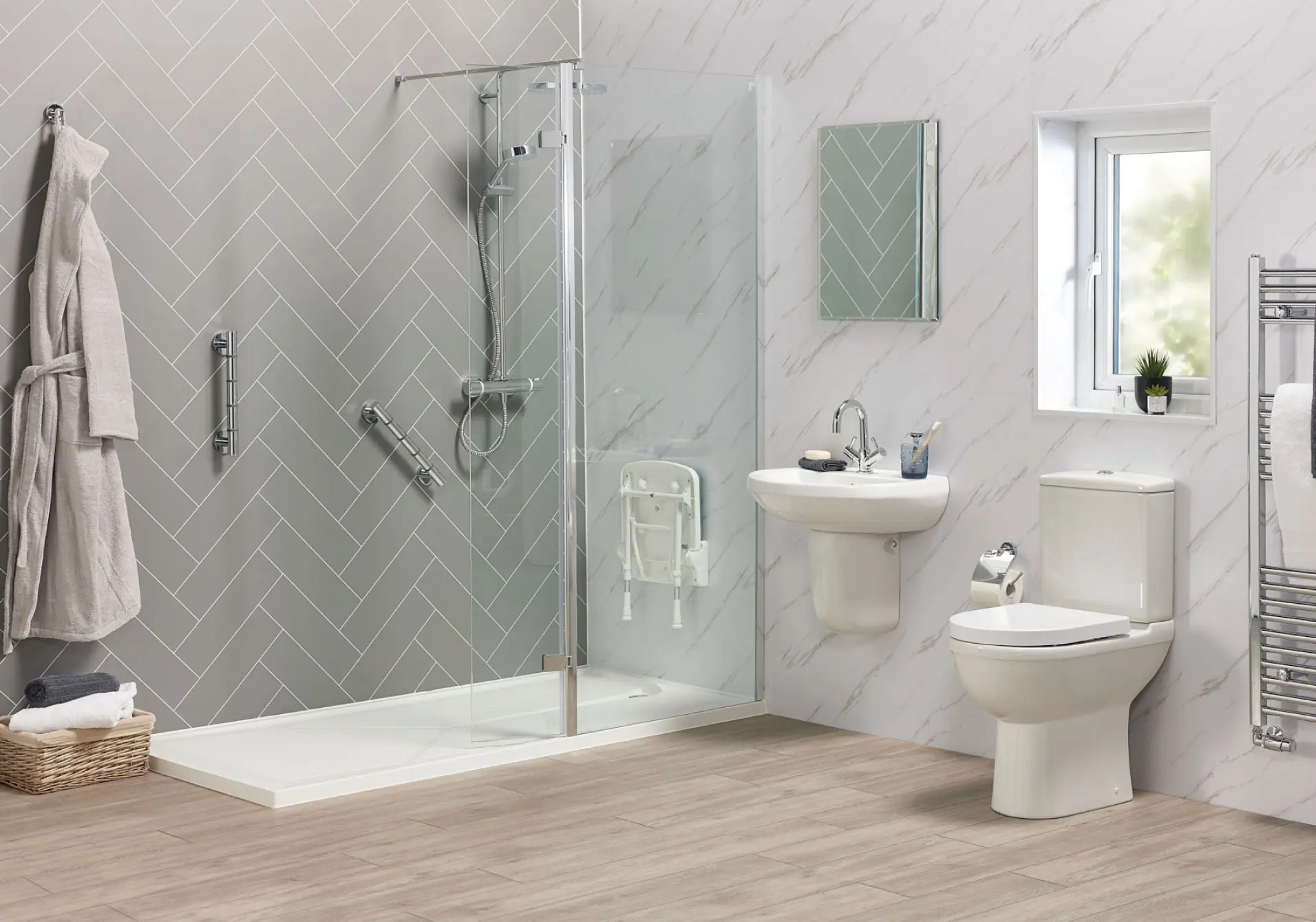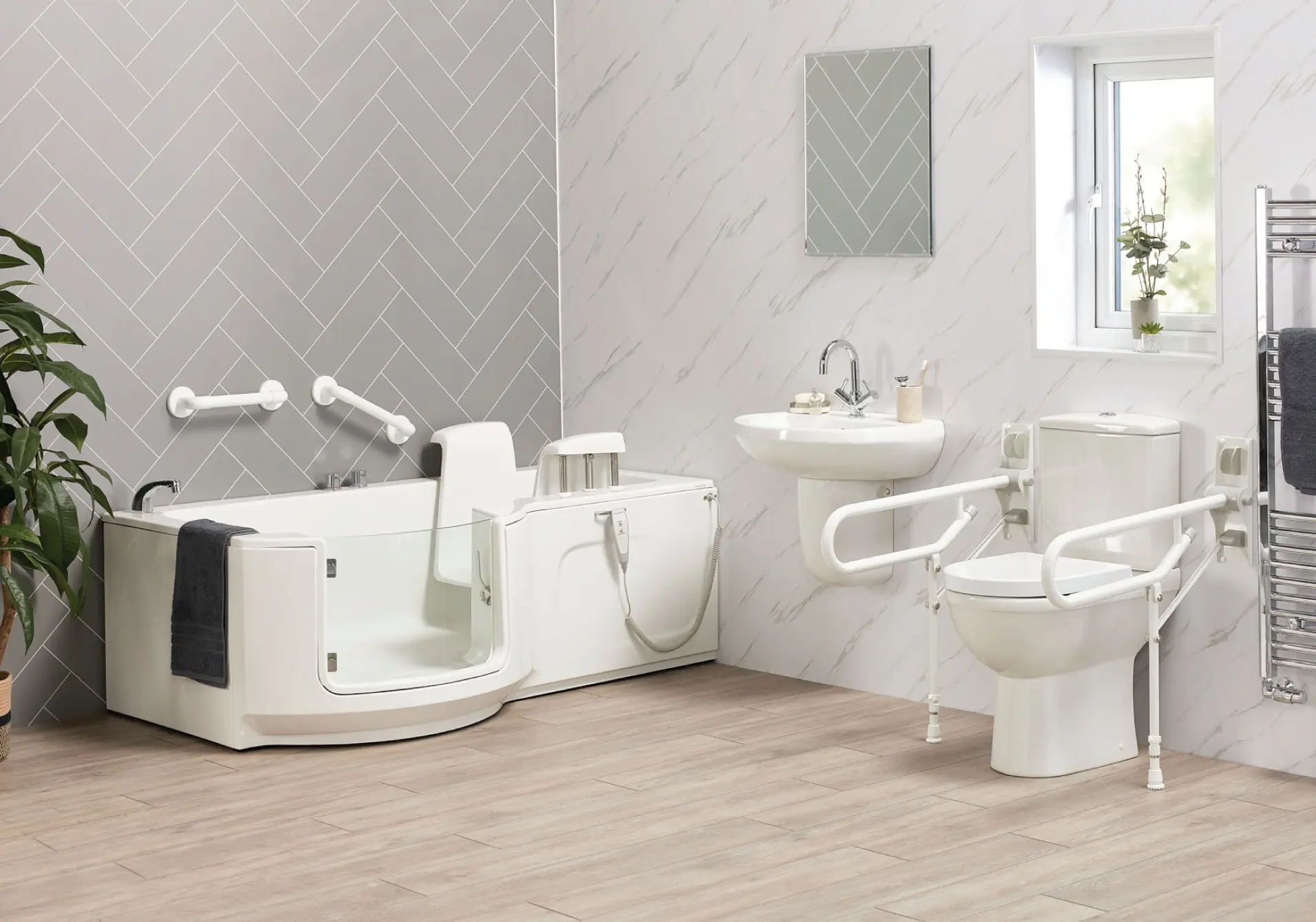If you’ve ever thought that a small bathroom couldn’t be turned into a spa-like oasis, think again! Wet rooms, especially a disabled wet room, offer a transformative solution, particularly for those with mobility challenges. In this guide, we’ll debunk the myth that small spaces can’t be luxurious and explore the world of disabled-friendly wet rooms, answering your burning questions and showcasing innovative ideas to make the most of limited space.
Unlocking the Potential of Small Spaces: Disabled Wet Rooms Explained
In essence, a disabled wet room is a bathroom where the showering area seamlessly integrates into the overall design, eliminating the need for a traditional shower tray. Through a process known as tanking, the space is waterproofed, ensuring that water from the shower flows directly onto the floor, eventually draining away. This minimalist approach not only maximises space but also creates a sleek and modern aesthetic, reminiscent of a spa retreat.
Frequently Asked Questions about Disabled Wet Rooms
Is a Wet Room Suitable for My Home?
Virtually any bathroom space can be transformed into a disabled wet room, regardless of size. However, smaller bathrooms may require additional measures, such as glass screens, to contain water spray effectively.
Where Does the Water in a Wet Room Go?
Unlike traditional showers with contained trays, water in a wet room typically flows directly onto the floor before draining away through a waste outlet. To achieve this, the floor must be sloped gently towards the drain. This can be accomplished through various methods, including re-flooring or using ready-made shower tray formers.
How Do I Waterproof My Bathroom?
Waterproofing is essential for any wet room, with specific attention paid to the flooring and lower sections of walls within the showering area. Splash protection may also be necessary for other walls to prevent water damage.
What Are the Advantages of a Wet Room?
From enhanced accessibility to a contemporary aesthetic, there are numerous benefits to installing a wet room. These advantages are further explored in our dedicated blog post on wet room benefits.
What Considerations Are Important in a Small Wet Room
In compact wet room spaces, storage solutions become crucial, requiring creative thinking to accommodate towels and toiletries. Additionally, the impact on property value should be considered, as some homebuyers may prefer traditional baths.
Innovative Ideas for Small Wet Rooms
To illustrate the potential of disabled-friendly wet rooms in small spaces, let’s explore a practical example. Our design focuses on clean lines and contemporary elements, utilising the best possible options to maximise visual appeal. We prefer wood-effect designs as they add warmth and sophistication. For the showering area, a single fall wet room shower tray former ensures seamless drainage, complemented by premium shower fixtures for added luxury.
The Layout Dilemma: Planning Your Small Wet Room
The layout of your small bathroom plays a crucial role in optimising functionality. Strategic positioning of fixtures, such as toilets and basins, is essential to maximise space and ensure practicality; we will always give careful consideration to door placement and ventilation. Accessibility and ease of use take precedence in our planning process.




